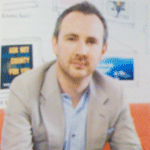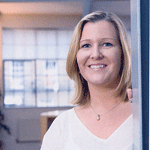Where's value in best laid plans? |
| Agency executives explain to Michael Cullen the whys and wherefores of planning |
For years, strategic planning in Ireland was a discipline applied to ‘special' or large-scale clients and to ‘special' or large scale projects, including new business pitches. Diane Tangney, head of strategic planning, Cawley Nea\TBWA says planning is now becoming a part of how agencies work on each client project. It calls for more planners in a market with a small experienced talent pool and that is the journey adland is on.
“The role of planning in an agency is to stimulate conversation, provoke thought, inspire ideas and drive their development,” Tangney said. “Our job is to get the best out of the minds around us, to make creative work better. Someone once said to me that a planner doesn't always have the answer, but they'll usually know it when they hear it.”
Leo Moore returned to Dublin recently to head up the planning function at McCann Erickson. For him, great planning is about ensuring consumer needs, seeing wants and motivations get brought to the core of the communication process. To be a good planner, you must have an unrelenting curiosity about how best to deliver brand messages. Planners will have an eye for detail and an understanding of the bigger picture.
“Good planning is about getting to the heart of an issue quickly,” Moore said. “We must write briefs which motivate creatives and address business issues. They should be strategic and intuitive, have an instinct for what will work with consumers and the bravery to go with that instinct. Of course, you need to be a good team player. Most importantly, we must love thinking and talking about marketing communication.”
Aisling Ryan is in charge of planning at Ogilvy & Mather. She says a good planner is creative and charismatic and culturally attuned. They are happy to embrace tension rather than dilute the brand's vision. To fulfil their task of bringing energy and innovation, they mustn't easily accept the word ‘no'. Planners are born, not made and they come from all walks of life, but a background in the arts or psychology is certainly of some help
Moore too is of the opinion that planners are born, not made. People can learn about data analysis, focus group moderation and writing a brief, but you need to understand what a set of numbers is telling you and articulate the conclusions. A passion for brands and communication is essential if fresh insights are to be found for pushing the boundaries.
 |
“Like an architect, a good planner needs to use both the left and right brain,” – Aisling Ryan, O&M |
She refers to someone who works in Ogilvy's Frankfurt office, an excellent planner who was once a copywriter. Many great creatives are strategic and she singles out her colleague Declan Hogan as one. In Ogilvy, the planners sit right next to the creatives.
But Ryan believes that only bad planners are frustrated creatives. A planner should know where and how they can add value, their creative output is the quality thinking and ideas.
Moore says planners approach communications differently to creatives. Planners know their creative limitations and the priority is work that is ‘on message'.
At Cawley Nea\TBWA, they have what they call ‘spark sessions', in place of the formal writing of a creative brief. Whereas before the planner or account handler would write the creative brief with one proposition, a full team, having read the client brief, brainstorm. All creative development work is derived from and judged against the ‘spark' idea.
Do planners merely take a researcher's ideas and re-write them as creative briefs? Moore disagrees. He says a great creative brief is not just a summary of research findings but teases out the implications of research and delivers a brand proposition based on a powerful insight. Research informs where a great brief provokes, challenges and inspires.
Ryan also refutes the claim that planners plagiarise researchers' ideas. “If this were true,” Ryan said, “planning as a discipline would cease to exist. Research needs to be interpreted, not slavishly followed. Research is only one tool in a planner's toolbox. A good planner interprets the brand and the market and makes a creative strategic leap.”
 |
‘Good planning is getting to the heart of an issue quickly' – Leo Moore, McCann Erickson |
Tangney points to advertising effectiveness, a term bandied about a lot these days. Clients want to see campaigns which yield meaningful results, be it in increased sales, market share, benchmarking studies or hits to a website. The IAPI Advertising Effectiveness Awards (previously AdFx) play a big role in highlighting real results.
“Clients vary from having limited available data to reams and reams of it,” Tangney said. “The planner's role is to derive observations and insight from the data or research available and use it in the development of business strategy.” Clients look to planning for a perspective on what is going on with consumers in Ireland and further afield.
In recent months, planners at Cawley Nea\TBWA have created a presentation called ‘The Mind and Mood of Ireland'. It draws from quantitative and qualitative data and presents a picture of what is going on in post-Celtic Tiger Ireland and comments on consumer behaviour and mindset shifts. There are modules on best practice in a recession economy.
What of suggestions that planning takes the gut out of advertising by over-analysing everything to the point of paralysis? Ryan disagrees. “The best planners are intuitive,” she said. “They work on the brand's vision. Rigour is never wasted if married with creativity and purpose. Analysis without output isn't planning, it's an academic exercise.
Ryan does not think that a planner needs to have experience working as a client. “I don't think it's essential,” she said. “In fact, it might inhibit their ability to think differently in a particular sector.” Moore, a media manager at Diageo for several years, believes an empathy with client needs and a knowledge of how they operate matters most.
There was a tendency for media people to move to planning on the basis they had media planning experience. Moore says that as the mediascape gets more complex, media people are becoming more suited to planning disciplines. Good media planners need to have a firm grip on consumer motivations and behaviour to develop the best strategies.
He points to the AA fourth rescue service as a successful campaign that owes its existence to planning. Ryan says Ogilvy's Henri Hippo campaign for Ulster Bank was born out a planning insight. In the UK, the Olivio campaign worked so well that Unilever adopted it globally and it migrated to include the entire Bertolli product range.
Moore believes the role of planning will become more important as the economy tightens. Clients are likely to become even more focused on effectiveness from marketing investment. A planner's input in writing briefs and effectively analysing marketing communications results will be seen as more valuable as budgets get tighter.
 |
‘A planner doesn't always have the answer, but they'll know it when they hear it' – Diane Tangney, Cawley Nea\TBWA |
Tangney see the planning role moving to the centre of the agency as that is the best position to draw in multi-disciplined talent from other departments than just the creatives. “The old school, Chinese whispers procedure of client tells suit, suit tells planner, planner tells creative is ineffective and outdated.”
Looking ahead, Ryan believes that planners must be fluent in business language. Effectiveness must be an obsession. “We're gaining the ear of the boardroom as we tackle not just how a brand communicates or behaves but also where and how profit is made and explore new revenue streams.” The planner of the future is an entrepreneur.









